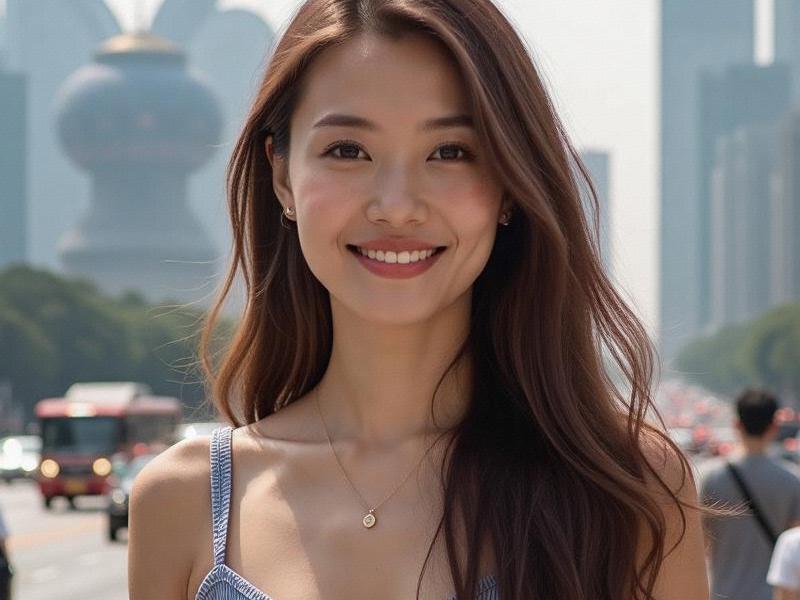This feature explores how Shanghai women are redefining Chinese beauty ideals through a unique blend of Eastern aesthetics and global influences in China's most cosmopolitan city.

The morning light filters through Xintiandi's art deco buildings as twenty-something entrepreneur Li Wen applies her "Shanghai makeup" - a perfect balance of French skincare, Korean cushion foundation, and a subtle Chinese-inspired lip tint. This daily ritual embodies how Shanghai women are crafting a distinctive beauty identity that's transforming China's fashion landscape.
Historical Roots of Shanghai Glamour:
• 1920s: The "Shanghai Girl" phenomenon emerges as China's first modern female archetype
• 1930s: Qipao (cheongsam) evolves into body-hugging silhouette at Paris-inspired tailors
• 1980s: First Western beauty brands enter China through Shanghai's Peace Hotel beauty salon
• 2000s: Local brands like Herborist blend TCM with Swiss technology
Modern Shanghai Beauty Ecosystem:
• 68% of Chinese beauty startups headquartered in Shanghai
上海龙凤419杨浦 • 42 international cosmetics R&D centers in Pudong
• 89% of Shanghai women use 3+ skincare regimens daily (national average: 57%)
• "Guochao" (national trend) makeup lines generate ¥38 billion annually
Street Style Signature Looks:
• "Business Qipao" - modernized cheongsam with blazer pairing
• "Jing'an Natural" - no-makeup makeup emphasizing luminous skin
• "Huangpu Glam" - bold lips with minimalist eye focus
• "French Concession Chic" - effortless updos with silk scarves
上海贵族宝贝sh1314
Cultural Fusion in Beauty Practices:
• Traditional gua sha massage meets LED therapy
• Herbal compress spas incorporate Japanese onsen rituals
• Calligraphy brow artists train in microblading techniques
• Tea-based skincare lines developed with French perfumers
Industry Disruptors:
• Livestream beauty queens like Austin Li drive 42% of luxury sales
上海夜网论坛 • Custom 3D-printed foundation machines in mall kiosks
• AI skin diagnostics available at 68 metro stations
• Sustainable beauty startups reducing packaging by 78%
The Shanghai Beauty Paradox:
• 68% follow K-beauty trends while 89% emphasize "Chinese skin" ideals
• 52% use luxury imports but 78% prefer local brands for herbal products
• Fast fashion dominates but 42% own at least one bespoke qipao
• High-tech routines coexist with traditional medicine practices
As Shanghai prepares to host the 2026 International Cosmetic Innovation Summit, its women continue to redefine beauty on their own terms - honoring heritage while embracing global influences, valuing both technological innovation and time-honored rituals. This dynamic approach positions Shanghai not just as China's beauty capital, but as a rising global influencer in cosmopolitan style.